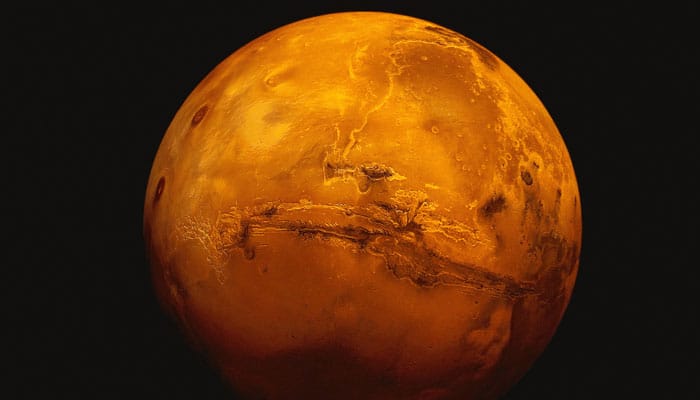Washington: Scientists have found that like Earth, Mars too has macro weather, a regime which is used to described the relatively stable regime between weather and climate.
According to the researchers at McGill University and UCL, the three-part pattern applies to atmospheric conditions on Mars, where Sun also plays a major role in determining macroweather.
The research promises to advance scientists' understanding of the dynamics of Earth's own atmosphere-and could provide insights into the weather of Venus, Saturn's moon Titan, and possibly the gas giants Jupiter, Saturn, Uranus and Neptune.
The scientists chose to study Mars for its wealth of data with which to test their theory that a transitional "macroweather" regime exists on other planets. They used information collected from Viking-a Mars lander mission during the 1970s and 1980s-and more recent data from a satellite orbiting Mars.
By taking into account how the Sun heats Mars, as well as the thickness of the planet's atmosphere, the scientists predicted that Martian temperature and wind would fluctuate similarly to Earth's, but that the transition from weather to macroweather would take place over 1.8 Martian days (about two Earth days), compared with a week to 10 days on Earth.
Lead author of the paper Shaun Lovejoy said that their analysis confirmed the prediction quite accurately, and adds to evidence, from studies of Earth's atmosphere and oceans, that the Sun plays a central role in shaping the transition from short-term weather fluctuations to macroweather."
The findings also indicate that weather on Mars could be predicted with some skill up to only two days in advance, compared to Earth's 10 days.
Co-author Professor Jan-Peter Muller from the UCL Mullard Space Science Laboratory, said it would be hard predicting the weather on Mars beyond two days given what they have found in weather records there, which could prove tricky for the European lander and rover.
The study is published in Geophysical Research Letters.
















